Jane Fonda Opens Up About Struggle With Bulimia: “I Led a Secret Life”
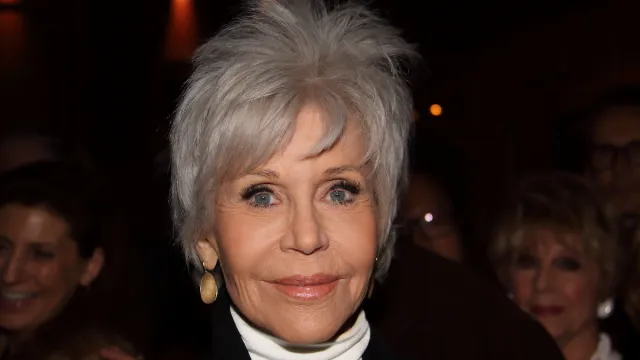
Jane Fonda isn’t afraid to open up about her personal life, and in a new interview, she shared the details of her experience with an eating disorder, including how it started, how serious it became, and how she recovered. On the Feb. 1 episode of the podcast Call Her Daddy, Fonda said that, during her early career, she felt like she was living “a secret life” suffering from and hiding her bulimia.
The two-time Academy Award winner has often been candid about her health, including her cancer diagnosis. Now, she’s explaining how her eating disorder became “a terrible addiction” that she thought would kill her before she turned 30. Read on to find out more about the now-85-year-old actor’s story.
READ THIS NEXT: See Jane Fonda’s 2 Grandchildren, Who Are Following in Her Footsteps.
Fonda thought she would die young.
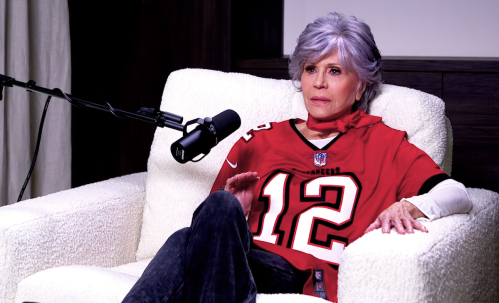
In her interview with Call Her Daddy, Fonda was asked to look back on her twenties, since a lot of women that age listen to the podcast.
“In my twenties, I was starting to be a movie actor. I suffered from bulimia very, very bad. I led a secret life. I was very, very unhappy,” she said. “I assumed I wouldn’t live past 30—I’m 85. I don’t understand. Well, I do. I worked hard.”
She continued, “I worked hard. I didn’t go out. I didn’t hardly date ’cause I was unhappy, and I had this eating disorder. And then I was also making movies that I didn’t very much like.” She was deeply affected by the Vietnam War, which she said “changed [her] life,” because she became an antiwar activist in reponse.
She said that bulimia was an “addiction.”
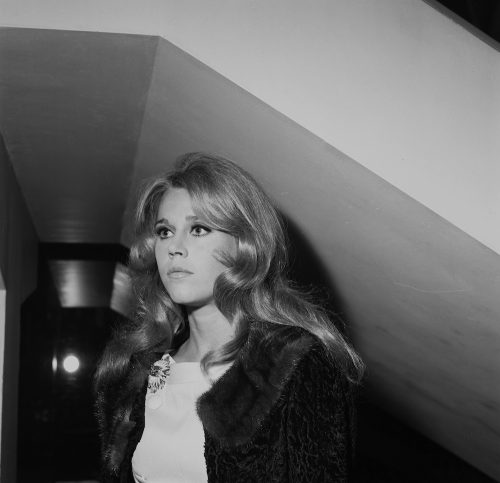
“It seems so innocent in the beginning, so innocuous,” Fonda said of developing bulimia. “Why can’t I just have this ice cream and cake and then I’ll just throw it up? What you don’t realize is, it becomes a terrible addiction that takes over your life.” The 80 for Brady star added, “Your day becomes organized around getting food and then eating it, which requires that you’re by yourself and that no one knows what you’re doing. It’s a very lonely thing.”
According to Johns Hopkins Medicine, “Bulimia is an eating disorder. It is characterized by uncontrolled episodes of overeating, called bingeing. This is followed by purging with methods such as vomiting or misuse of laxatives.” The site also notes that “many people with bulimia don’t seek help until they reach the ages of 30 or 50.”
For more celebrity news delivered right to your inbox, sign up for our daily newsletter.
She quit on her own.
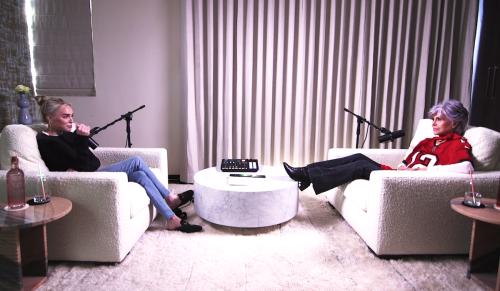
Treatment for bulimia can include seeing a doctor, therapist, nutritionist, and/or being prescribed medication. Fonda said that when she decided to break free from the disorder, she went “cold turkey,” because she didn’t know how to get support.
“It got to a point in my 40s when I just thought, If I keep on like this, I’m going to die,” Fonda said. “I was living a very full life. I had children, I had a husband—I’d had two husbands by then. I was doing political work. I was doing all of these things. My life was important, but I was becoming less and less able to continue it.”
Fonda said she “didn’t even know there was a word for” bulimia or support groups she could join. “I just went cold turkey, and it was really hard. But the fact is, the more distance you can put between you and the last binge, then the better it is. It becomes easier and easier.”
She also said that she was prescribed Prozac. “A lot of the cause of it was anxiety-driven, and Prozac helped me deal with anxiety,” the Oscar-winner said.
She also believes her childhood played a role.
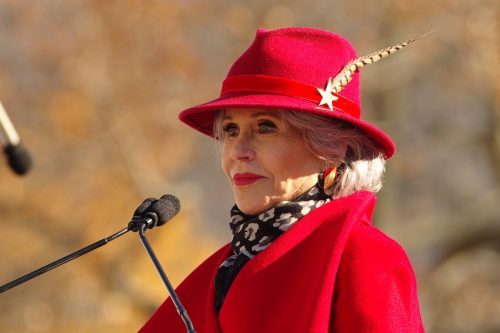
In a piece for Lenny Letter in 2016 (via Us Weekly), Fonda said that the adults in her life, including father Henry Fonda, contributed to her developing an eating disorder. “My father would send my stepmother to tell me to lose weight and wear longer skirts. One of my stepmothers told me all the ways I’d have to change physically if I wanted a boyfriend,” she wrote.
Her mother, Frances Ford Seymour, died when she was only 12 years old, and Fonda dealt with it in an unhealthy way. “Like three of my father’s five wives, I developed an eating disorder (probably to fill the emptiness),” she said in the piece.
In the 1980s, she starred in popular workout videos. Fonda says that her fitness career helped her recovery along. “I was doing the workout before I started the business, and it gave me back a sense of control over my body,” she told People in 2018.